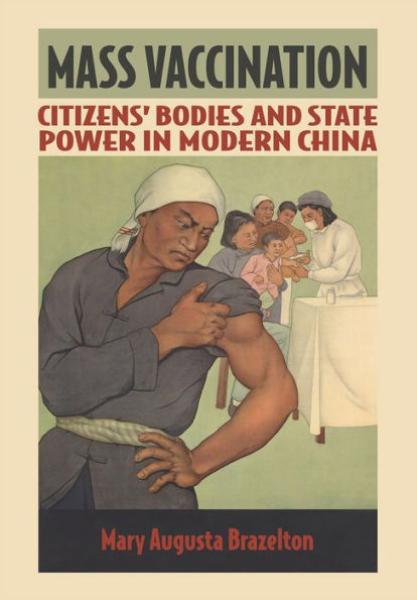Description
While the eradication of smallpox has long been documented, not many know the Chinese roots of this historic achievement. In this revelatory study, Mary Augusta Brazelton examines the PRC's public health campaigns of the 1950s to explain just how China managed to inoculate almost six hundred million people against this and other deadly diseases.
Mass Vaccination tells the story of the people, materials, and systems that built these campaigns, exposing how, by improving the nation's health, the Chinese Communist Party quickly asserted itself in the daily lives of all citizens. This crusade had deep roots in the Republic of China during the Second Sino-Japanese War, when researchers in China's southwest struggled to immunize as many people as possible, both in urban and rural areas. But its legacy was profound, providing a means for the state to develop new forms of control and of engagement. Brazelton considers the implications of vaccination policies for national governance, from rural health care to Cold War-era programs of medical diplomacy. By embedding Chinese medical history within international currents, she highlights how and why China became an exemplar of primary health care at a crucial moment in global health policy.
"This book reveals that the mass vaccination campaigns that eradicated smallpox and controlled other infectious diseases in China had a longer history, rooted in the work of researchers in China's southwest hinterlands during the Second Sino-Japanese War, and provided a means for the state to develop new forms of control and engagement with its citizens"--
Mary Augusta Brazelton is University Lecturer in Global Studies of Science, Technology and Medicine at the Department of History and Philosophy of Science at the University of Cambridge.
At a time when, at least in the United States, mandatory immunizations are increasingly controversial, Mary Augusta Brazelton's monograph, Mass Vaccination: Citizens' Bodies and State Power in Modern China, is a timely and welcome contribution to studies of the history of medicine.
-- "The PRC History Review"Scholars and students of modern Chinese history and especially 20th-century history of medicine will find this book essential as a platform for exploring the interconnectedness of global health systems and the importance of public health to governance and diplomacy.
--Tina Phillips Johnson, stvincent.edu "The China Quarterly"
Product Details
- Cornell University Press Brand
- Oct 15, 2019 Pub Date:
- 1501739980 ISBN-10:
- 9781501739989 ISBN-13:
- 258 Pages
- 9.02 in * 5.98 in * 0.75 in Dimensions:
- 1 lb Weight:




